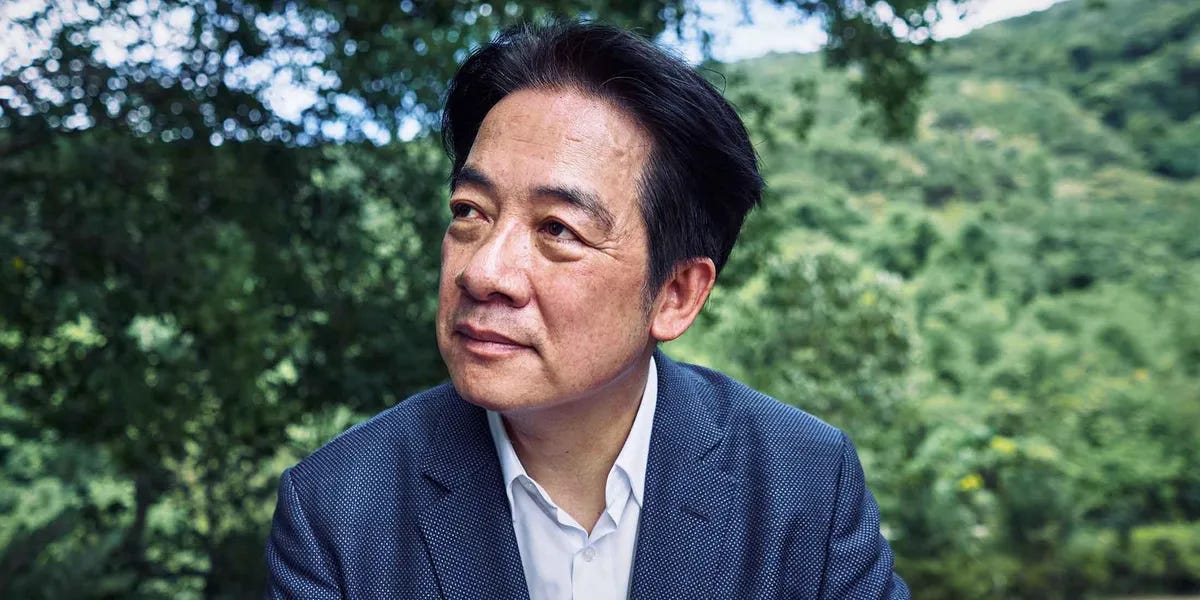Taiwan's Independence: President William Lai’s Bold Stance Amid Tensions with Beijing
Taiwan’s leader defends the island’s sovereignty while calling for pragmatic cooperation.
In a defining moment for Taiwan’s leadership, President William Lai delivered a bold defense of the island’s independence in his most high-profile address since assuming office earlier this year. With unwavering resolve, Lai argued that Beijing had no right to represent Taiwan, vowing that the self-ruled island would “resist any annexation or encroachment” by China. His speech marks a pivotal moment in Taiwan’s ongoing struggle for recognition on the international stage while balancing regional stability with its powerful neighbor.
However, China was quick to respond, labeling Lai’s remarks as an escalation of tensions. A spokesperson for China’s foreign affairs ministry stated that the speech "exposed Lai’s intransigent position" on Taiwanese independence, accusing him of using this stance to gain political advantage while heightening tensions in the Taiwan Strait.
The Delicate Dance: Beijing’s Calculated Response to Taiwan
While Beijing expressed outrage at Lai’s speech, many experts believe that China will likely refrain from immediate military action. Although military drills are anticipated in the wake of Lai’s remarks, Chinese leadership may hold back from any aggressive displays so close to the U.S. presidential election, a time when the international spotlight is closely fixed on global powers.
A Taipei-based diplomatic source confirmed to Reuters that Beijing's restraint might be strategic, as China is keen to avoid stoking tensions with Taiwan that could directly involve the United States. This is a particularly sensitive time, with China grappling with its internal challenges, including slowing economic growth and a military burdened by corruption.
Political experts argue that China understands the risk of military confrontation with Taiwan, especially given the potential for the conflict to draw in U.S. forces. As International Crisis Group analysts point out, a full-scale invasion of Taiwan could lead to direct clashes with the U.S., a scenario that China is not prepared for—both militarily and economically.
Lai’s speech, though resolute in defending Taiwan’s sovereignty, also addressed pragmatic avenues for cooperation with China. He emphasized potential collaborations on shared challenges such as climate change and regional security, signaling that Taiwan is open to dialogue, but on its terms.
U.S. Leadership and the Future of Taiwan
As global tensions swirl around Taiwan, the role of the U.S. remains central in maintaining regional balance. Whoever wins the upcoming U.S. presidential election will have a significant influence on Taiwan's future and U.S.-China relations. Analysts largely agree that the policies of the Biden administration, which have prioritized supporting Taiwan, are likely to continue under most future administrations. However, concerns loom over a possible second term for former President Donald Trump, who might be more inclined to negotiate with China and less committed to defending Taiwan in the event of conflict.
Experts from the Center for Strategic & International Studies argue that the U.S. presidential transition must be carefully managed to ensure there are no "openings" for China to engage in opportunistic provocations. This period of political uncertainty in the U.S. presents a critical window for Beijing, which may seek to test U.S. resolve or undermine Taiwan’s security.
The stakes are high. A failure to deter China from launching military action against Taiwan could have severe repercussions, not only for regional stability but also for the global economy and the potential for nuclear escalation, The Economist warns. The world will be watching closely as both Taiwan and its allies navigate this delicate and dangerous geopolitical landscape.
Taiwan’s Independence at a Crossroads
President Lai’s defiant stance on Taiwan’s independence highlights the island’s determination to assert its sovereignty while walking a fine line with Beijing. Though Lai’s speech struck a pragmatic tone, China’s response underscores the fragility of peace in the region. As Taiwan moves forward, the role of international actors—particularly the U.S.—will be crucial in shaping the future of cross-strait relations. The next few months, with the U.S. presidential election looming, could prove pivotal in determining the course of this ongoing struggle.



